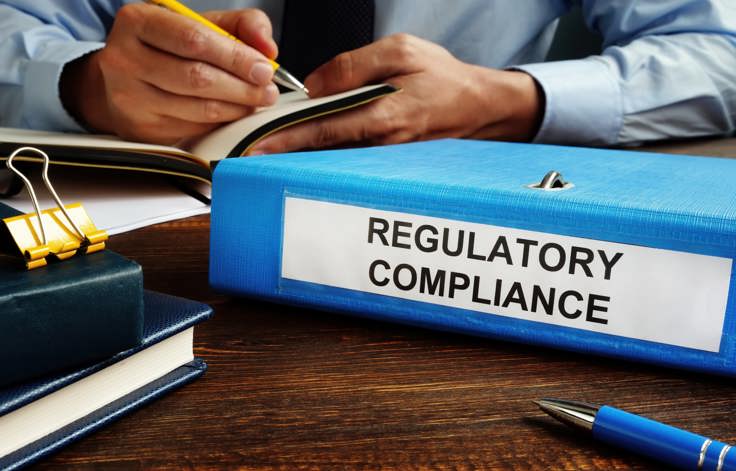An accurate property valuation you can trust
We'll help you to find the value of your property, so you can find a buyer or tenant as soon as possible.
Enter your details below to book a professional appraisal.
New landlord registration database explained: what you must do to comply and what happens if you don't
The UK's private rental market is changing. As part of the government's new Renters' Rights Bill, a mandatory landlord registration database will soon be introduced in England. It's designed to provide tenants with clearer information, help councils enforce standards, and make it easier for responsible landlords to demonstrate compliance.

If you let property, this is one of the most important legal changes on the horizon. Here's what the new database is, how to stay compliant, and what could happen if you don't register.
What the new landlord database is
The Bill creates a single, national Private Rented Sector (PRS) database. All landlords will be required to register both themselves and every property they let out in England. Some of the information will be publicly available; other details will be visible only to enforcement bodies.
- One-stop system: The database replaces fragmented local registers and the "rogue landlord" list with a single national record.
- Mandatory before letting: You must register before marketing or renting a property.
- Details required: Landlord identity and contact details, property address, letting agent (if used), safety certificates (EPC, gas, electrical), and compliance status.
- Fee to register: A proportionate registration fee is expected (exact amounts will be confirmed when regulations are published).
- Linked to redress scheme: Landlords must also join a new national Ombudsman/redress scheme; the database will check this.
Once live, tenants will be able to check if a landlord and property are registered before signing a tenancy. Local authorities will utilise the system to monitor standards and target enforcement efforts.
How to comply when the database launches
Exact processes will be set out once the Bill passes, but landlords should be ready to:
- Register yourself: Provide your legal name, contact address and proof of identity. If you use an agent, their details may also be required.
- Register each property: Enter the full address, type of property, number of units/rooms and upload safety compliance documents (EPC, gas safety, electrical checks).
- Keep your record up to date: Update whenever you sell, change agents, or renew safety certificates.
- Display registration details: You may need to include your registration reference in advertising or tenancy paperwork.
- Join the landlord Ombudsman: Being part of a redress scheme will be a condition of lawful letting.
While the database is not yet live, it makes sense to start preparing now: organise certificates, check your EPC rating, and keep accurate ownership details ready.
What happens if you don't register
The Bill gives local authorities strong powers to act against landlords who fail to comply.
- Fines: Civil penalties for non-registration could start around £7,000 and rise to £40,000 for serious or repeated breaches.
- Advertising ban: Marketing an unregistered property will be illegal.
- Rent repayment orders: Tenants may be able to claim back rent if you've let a property illegally.
- Loss of possession rights: Landlords who aren't registered may not be able to use the courts to regain possession.
- Criminal offence for false information: Intentionally supplying incorrect details could become a criminal matter.
Failing to register won't just risk fines - it could stop you from recovering rent or regaining your property if you need to.
Other key changes in the Renters' Rights Bill
- Section 21 "no fault" evictions will end: Landlords will need a legal reason to end tenancies.
- Stronger tenant rights: More secure rolling tenancies and limits on rent bidding.
- Decent Homes Standard: Minimum quality requirements will apply to private rentals.
- Ombudsman scheme: All landlords must belong to a redress service for tenant complaints.
The Bill is still passing through Parliament, so some details may change. But registration and compliance will become a core part of letting legally in England.
How Farrell Heyworth helps landlords
At Farrell Heyworth, we help landlords stay compliant and competitive. Our letting teams can:
- Explain the new database requirements and guide you through registration once it launches.
- Ensure your property meets upcoming safety and standards rules.
- Provide full management services, so compliance is handled for you.
- Advise on timing and strategy if you're buying, selling or restructuring your portfolio before the new rules take effect.
If you're unsure about what the Renters' Rights Bill means for your rental business, talk to us now. Early preparation will make the transition smoother and avoid costly delays or penalties once the register goes live.
The new landlord database will be a legal requirement - not an optional extra. Failing to register could result in heavy fines, difficulty regaining possession, and damage to your reputation. By preparing documents early, adhering to safety standards, and working with an experienced letting agent, you can protect your investment and remain fully compliant as the rental market evolves.
Need expert guidance?
Contact Farrell Heyworth for tailored advice on the Renters' Rights Bill, landlord registration and everything you need to let property legally and successfully in the North West.
Related Posts
Why Coastal Relocations Will Surge Again in 2026: Complete Guide for UK Home Buyers
Across the UK, search volumes for phrases such as "move to the coast", "best coastal towns to live", and "coastal…
New 2026 Laws for Self-Managing Landlords: Essential Compliance Guide
With additional reforms due in 2026 under the Renters' Rights Act, and with local authorities receiving an extra £18.2 million…
Best Time to Buy a Property in 2026: A Month-by-Month Guide for UK Buyers
Rather than relying on rapid price growth to offset poor decisions, buyers in 2026 must understand seasonal trends, mortgage market…



